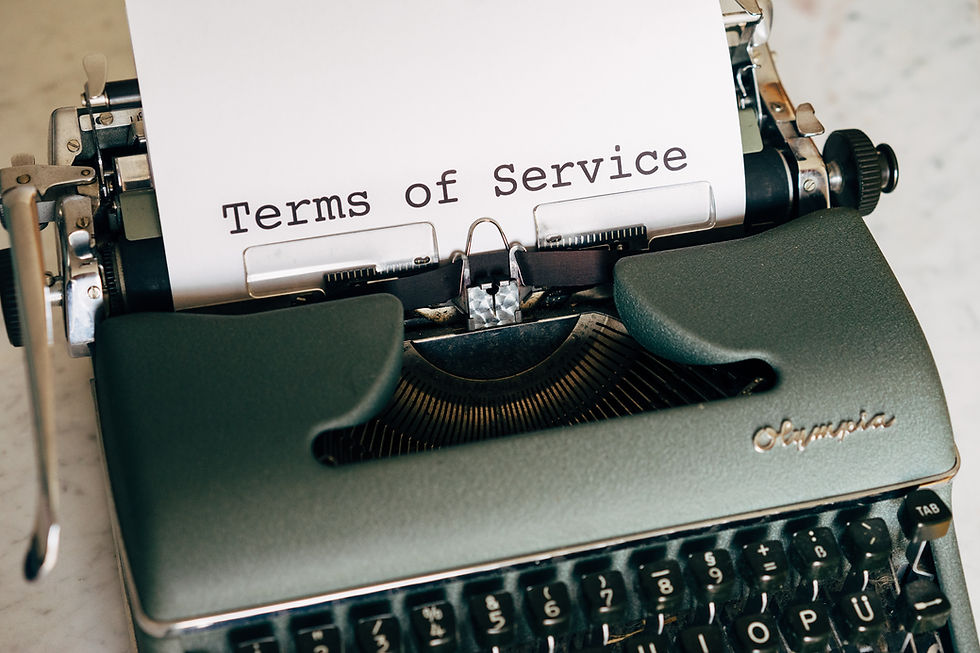The WORST Things To Sell To The Government | Mandatory Sources
- Juan Juarez
- Sep 8, 2024
- 3 min read
So, you have an established business and perfected your product or service. But what if that one thing you sell is a bad product to sell to the government? How would you know? Would you even know?

What Are Mandatory Sources?
There’s a term in FAR Part 8 called “Mandatory Sources.” Think of it as a hierarchy of sellers that the government must consider before turning to the commercial market. Before "Big Daddy Government" shops for goods in the open market, it tries to get a better deal from these mandatory sources.
Why Steer Clear of Mandatory Source Items?
If the government is required to purchase from these sources, your chances of winning a contract for these items are drastically reduced. For example, if you sell furniture or textiles, there may be programs that forces the government to buy from specific sources, making your bid irrelevant.
To improve your chances, focus on items and services that aren’t restricted by mandatory source requirements or ensure that your offering is distinct enough to bypass these regulations.
Examples of Mandatory Sources:
Supplies: The government will first turn to sources like Federal Prison Industries (FPI) or the AbilityOne Program. If these sources can’t meet the need, only then will the government consider other options such as Federal Supply Schedules or open market purchases.
Services: Services follow a similar pattern, often favoring AbilityOne for applicable services.
How the Government Prioritizes Mandatory Sources: A Step-by-Step Example
Let’s pretend you’re the U.S. Army, and you need new IT equipment like computers and routers. Here’s how the government prioritizes mandatory sources:
Check Internal Sources: The Army first checks its own logistics for spare IT equipment. If they find any, they can save money by using what they already have.
Excess from Other Agencies: If the Army doesn’t have extra equipment, they check with other agencies like the Navy or Department of Labor to see if they have surplus IT equipment they’re willing to sell.
Federal Prison Industries (FPI): If no other agency has excess, the next step is to check with FPI, also known as UNICOR, which uses prison labor to produce goods for the government. While prisoners aren’t likely manufacturing IT equipment, this is still a mandatory step.
Wholesale Supply Sources: Next, the government looks at established contracts with private companies, like those managed by GSA (General Services Administration). Think of GSA as a Costco for the federal government, offering bulk purchasing options for agencies.
Open Market: If all the above options are exhausted and the needed equipment isn’t available, only then can the Army buy from the commercial market.
The Government’s Procurement Process for Goods and Services
When a federal agency needs to buy something, it follows a strict process:
Identify Requirements: The agency identifies its needs.
Check Mandatory Sources: Before issuing a solicitation, they check if UNICOR or AbilityOne can supply what they need.
Determine Availability: If these sources meet the agency’s needs, they must purchase from them.
Proceed to Other Sources: If not, they move to other options like the GSA.
Open Market: If all else fails, the agency can then solicit offers from commercial vendors.
Avoid Mandatory Source Items to Increase Your Chances
Before you invest in selling a product to the government, ask yourself: Will the government purchase this from the commercial market? If the answer is no, it may be time to rethink your strategy. By steering clear of mandatory source items, you’ll increase your chances of landing government contracts.





Comments